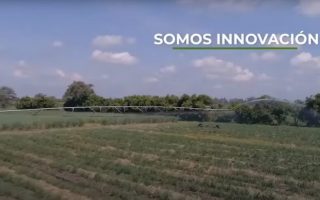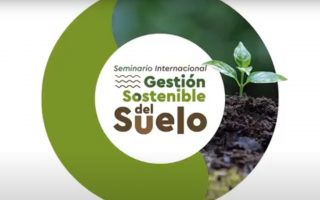Context
Relevant aspects of environmental sustainability in the sugarcane production chain
Múnera Castañeda, BE; Palacios García, D.; Gil Zapata, N. | JAN 2024 | ISBN 978-958-8449-32-6
Introduction
In its strategic vision with a horizon of 2030, the sugarcane agroindustrial sector seeks to ensure its sustainability by maintaining the balance between three fundamental pillars: social development, environmental conservation and economic development. It is evident, therefore,
that improving the environmental performance of the sugarcane production chain should contribute significantly to the achievements outlined within the framework of sustainability.
To this end, mills and growers are aligned with the fulfillment of common goals that seek to reduce the consumption of inputs and water, the generation of waste and discharges, and ensure that the production of sugar and its derivatives meets international standards. of sustainability. With this, the sector ratifies its commitment to society and the environment and gives added value to its products. The achievements and actions of the Colombian sugar sector in terms of environmental sustainability are highlighted below, the result of joint work in recent years between mills, growers and Cenicaña.
About the authors
Múnera Castañeda, BE
Sanitary and Environmental Engineer, graduated in 2015 from the Universidad del Valle, Cali campus, and master's student in Sustainability, at the Universidad Pontificia Bolivariana, Medellín campus.
He has more than seven years of experience in the sugarcane agroindustrial sector, specifically in issues related to environmental sustainability. He was linked for six years to the Cenicaña Factory Processes Program, as an environmental engineering professional, from where he worked and led research projects in the sustainable management of water in the industrial sugarcane process, diversification initiatives associated with the use of byproducts such as vinasse, cachaça and combustion ashes, and supported the construction and verification processes of greenhouse gas inventories for the production of denatured anhydrous fuel ethanol in the region's distilleries. He is currently linked to the Integra Program, led by Cenicaña, where through the role of environmental extensionist, he promotes the adoption of more sustainable practices in sugarcane cultivation and the carbon footprint, as an indicator of environmental performance and efficiency in the units. productive of cane growers.
Palacios García, D.
Chemical Engineer with a master's degree in Energy Technologies from the University of Twente in the Netherlands. From 2015, he has worked as a researcher at the Research Center of the Colombian Sugar Cane (Cenicaña) where, since 2022, serves as coordinator of the diversification area and sustainability of the Factory Process Program. His experience is related to the development of indicators of sustainability for the sugarcane agroindustry and the production of greenhouse gas inventories. Also has experience in the use of sugarcane by-products for the generation of value-added products.
Gil Zapata, N.
Director of the Factory Processes Program of the Center for Research on Colombian Sugar Cane, Cenicaña. Account with 33 years of experience as a researcher in agribusiness of sugar cane. Expert in increasing productivity in sucrochemical processes, new products and indicators of sustainability . He is a chemical engineer from the Industrial University from Santander and PhD in Engineering Sciences from Louisiana StateUniversity.
National Water Agency (ANA), Federação das Indústrias do Estado de São Paulo (Fiesp), União da Indústria da Cana-de-Açúcar (UNICA), Centro de Tecnologia Canavieira (CTC). (2009). Water conservation and reuse manual in sugar-energy agroindustry. ANA. 288 p.
Alverson, R. (2013). “Re-thinking the Carbon Reduction Value of Corn Ethanol Fuel,” Ethanol Across America.
Amell, A.; Chejne, F.; Lopez, D.; Forero, C.; Herrera, B.; Alvarado, P.; Ceballos, CM; Giraldo, SY; Porras, J.; Mejía, AF and Velasco, FJ (2016). Technical consulting for the strengthening and improvement of the database of emission factors for Colombian fuels. Medellin. doi: 10.1016/j.diabres.2013.11.010.
Association of Sugar Cane Growers of Colombia (Asocaña). (2017). Annual report 2016-2017. https://www.asocana.org/modules/documentos/14140.aspx.
Bravo, JE; Estrada Bedón, A.; Gómez Perlaza, AL; Isaacs Echeverri, CH; Castro Fori, PW and Bejarano R., L. (2010). Experimental measurement and economic evaluation of fuel consumption in sugarcane transportation equipment. Quarterly Letter, Cenicaña, pp. 55–59. https://www.cenicana.org/pdf_privado/carta_trimestral/ ct2010/ct1y2_10/ct1y2_2010.pdf
Colombian Sugarcane Research Center (Cenicaña). (2016) Final report on water project 2016. http://bibliotecadigital.cenicana.org:8080/handle/item/6408.
Boy, D.; Santiago, A. and Garrido, A. (2015). Increasing efficiency in ethanol production: Water footprint and economic productivity of sugarcane ethanol under nine different water regimes in north-eastern Brazil. Spanish Journal of Agricultural Research, 13 (2), p. e1203.
Cruz Valderrama, JR (2015). Hydrological balance of supply and demand of water for irrigation in a productive unit. In: Efficient irrigation management in sugarcane cultivation in the geographic valley of the Cauca River. Ashen. Cali, Colombia, p. 60-81.
Ecoinvent. 2018. Ecoinvent (version 3.5). https://ecoinvent.org/the-ecoinvent-database/ data-releases/ecoinvent-3-9-1/.
Environment and Climate Change Canada (2016). Technical Guidance on Reporting Greenhouse Gas Emissions. http://publications.gc.ca/collections/collection_2016/eccc/En81-6-2016-eng.pdf
Galdos, M.; Cavalett, O.; Seabra, JEA; Nogueira, LAH and Bonomi, A. (2013). Trends in global warming and human health impacts related to Brazilian sugarcane ethanol production considering black carbon emissions. Applied Energy, 104 pp. 576–582. doi: 10.1016/j.apenergy.2012.11.002.
García Arbeláez, C.; Vallejo, G.; Higgins, M. Lou and Escobar, E.M. (2016). The Paris Agreement. This is how Colombia will act in the face of climate change. Available at: http://www. minambiente.gov.co/images/cambioclimatico/pdf/colombia_hacia_la_COP21/el_atrabajo_de_paris_frente_a_cambio_climatico.pdf.
Gerbens-Leenes, PW; Hoekstra, A.Y. (2009). The water footprint of sweeteners and bio-ethanol from sugar cane, sugar beet and corn. Value of Water Research Report Series No. 38. UNESCO-IHE Institute for Water Education.
Hoefnagels, R.; Smeets, E. and Faaij, A. (2010). Greenhouse gas footprints of different biofuel production systems. Renewable and Sustainable Energy Reviews, 14 (7), pp. 1661– 1694. doi: 10.1016/j.rser.2010.02.014.
Hoekstra, A.Y. & Hung, P.Q. (2002). Virtual water trade: A quantification of virtual water flows between nations in relation to international crop trade. Value of Water Research Report Series No. 11. UNESCO-IHE Institute for Water Education, Delft, Netherlands.
Hoekstra, A.Y.; Chapagain, AK; Aldaya, MM; Mekonnen, M. M. (2009). The Water Footprint Assessment Manual: Setting the Global Standard. Water Footprint Network.
- Sugar cane. 2. Agribusiness. 3. Water footprint. 4. Greenhouse gases. 5. Carbon footprint. 6. Environmental management.
Múnera Castañeda, BE, Palacios García, D. & Gil Zapata, NJ (2023). Relevant aspects of environmental sustainability in the sugarcane production chain. In: Colombian Sugarcane Research Center (Ed). Sugar cane agroindustry in Colombia. Cinderella
















